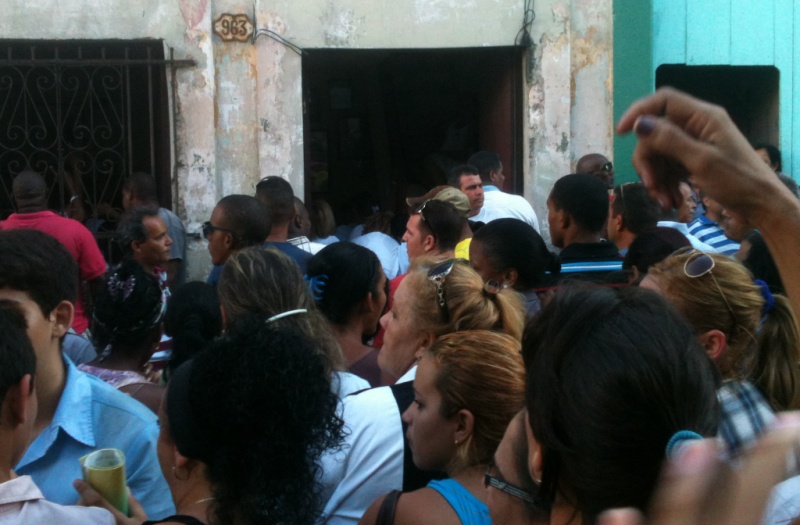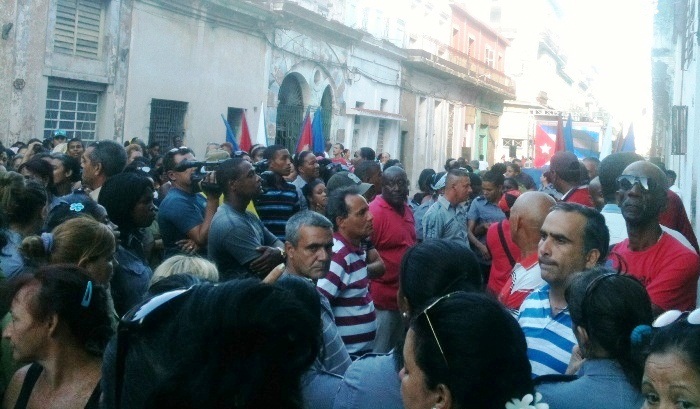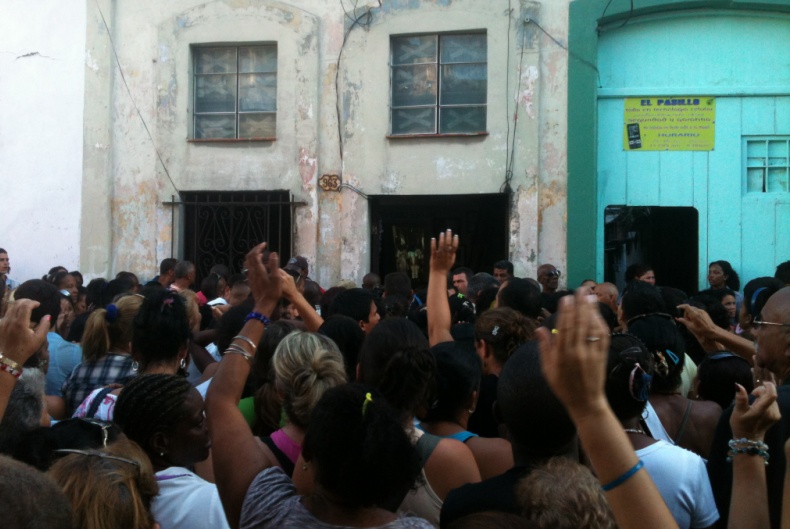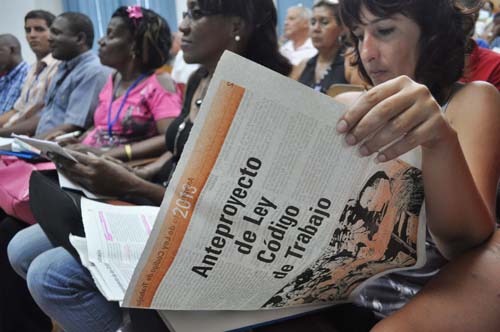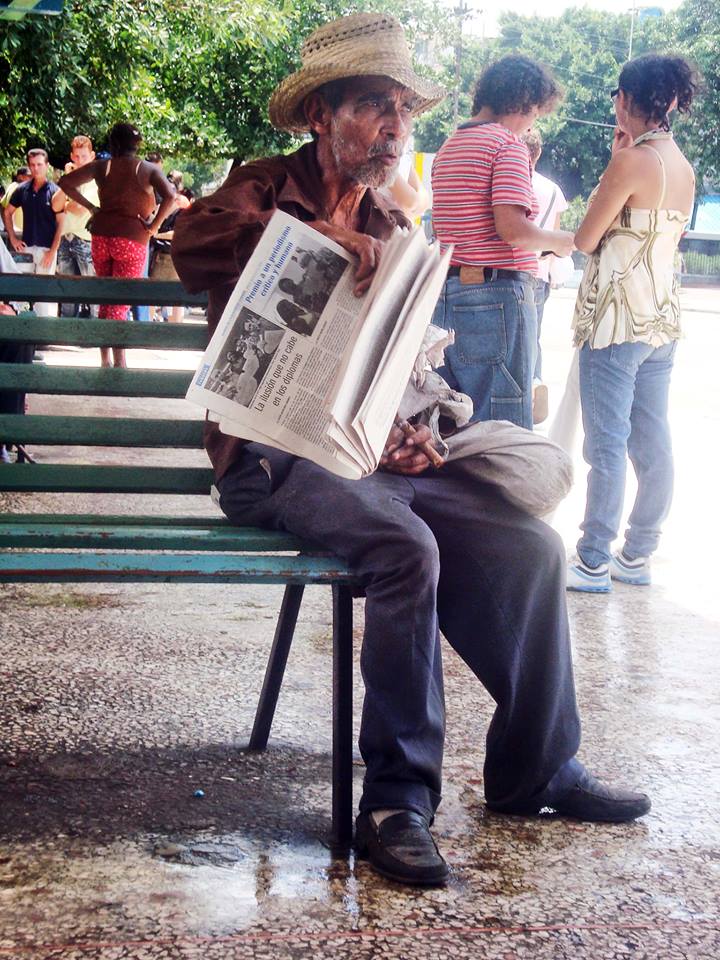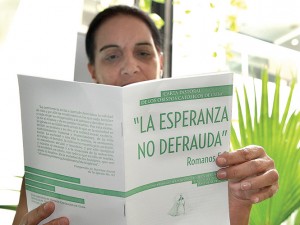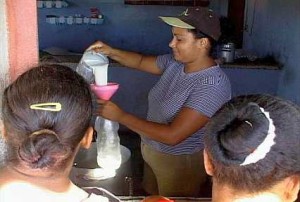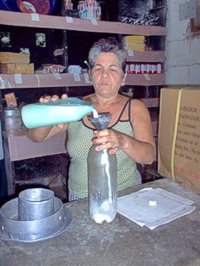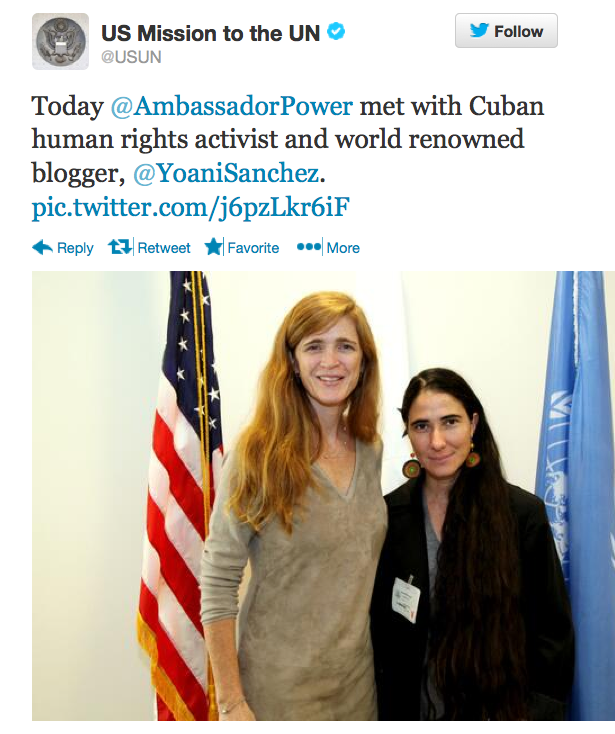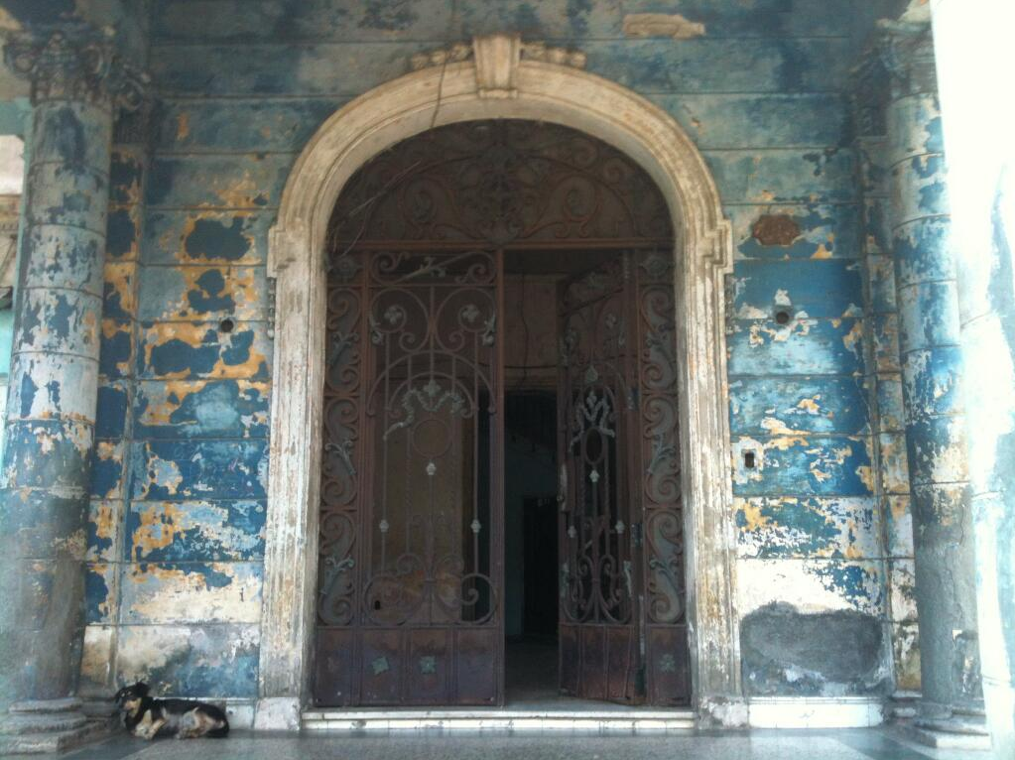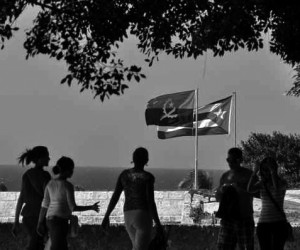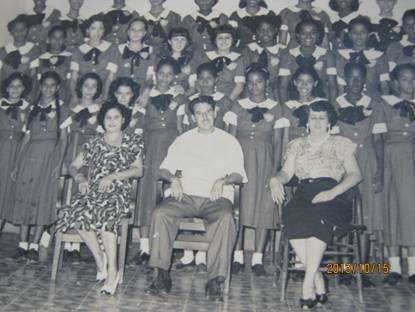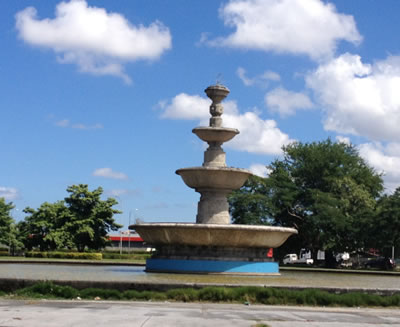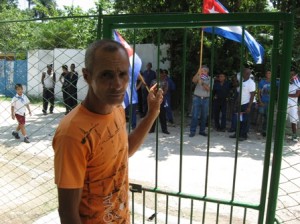
Havana, Cuba, 11 October 2103, Veizant Boloy / www.cubanet.org.- Today, Friday, 11 October at 6:45 AM, Andres Perez Suarez, president of the opposition group Commission for Assistance to Political Prisoners and Their Families (CAPPF, was arbitrarily arrested. The arrest was carried out by the Department of State Security agent known as Camilo, supported by the police of patrol car no. 131.
“Now, Andres, things are complicated for you!” Camilo shouted, as he tried to enter the house by force, according to information received in a phone call by Regla Rios Casado, a Lady in White and Andres’ wife.
“He climbed over the fence, which is more than six feet high, and climbed on the roof looking for a way to get into the house,” said Rios Casado. “He told us he had a search warrant but what he showed was a an arrest order and they took him away.”
Also near Pérez Suárez’s house they arrested Mario Moraga Ramos and Roberto Ávalos Padrón, both CAPPF activists. In this operation the participating State Security agents were Leodan, Frank, and Captain Alejandro. According to agent Camilo, who hours later returned to threaten Rios Casado, Perez Suarex was taken to the police station at Infanta and Manglar in the capital municipality of Cerro.
From September to now, the government’s represssive forces have deployed operation and arrested Perez Suarez nd his wife to keep them from going to the Ladies in White march at Santa Rita Church, where they go every Sunday.
“Every time, after enduring harassment and beatings, we are abandoned to our fate,” commented Rios Casado. “The last time agent Camilo arrested me they took me without my shoes and without any money to a complicated place* called La Lechuga, in Melena del Sur. On that occasion a man and a woman, both police officers, dragged me out of the patrol car by my feet,” she concluded.
Regla Rios Casado and her family have suffered more than three acts of repudiation from last month to today.
Opponents have, on several occasions, denounced this practice through legal means. Based on the exercise of complaint and petition, provided for in Article 63 of the Constitution of the Republic, and Article 26 of the rules themselves that recognize that “every person who suffers injury or damages unjustly caused by the officials and agents of the State exercising the functions of their job, have the right to demand and obtain corresponding reparations or indemnification in the manner established by law.”
The Attorney General of the Republic neither responds to complaints nor protects against them. Even though it is required to do so within 60 days of the violation.
More arrests today
We also learned that agent Camilo visited the Route 12 settlement of San Miguel del Padrón. Arrested there today were Yoeldy Boza Garrido, 24, and his father, Juan Bautista Boza, migrants to the capital from the province of Guantanamo. They live in appalling conditions, in a shack. Presumably, the reason for the detention was Yoeldy’s statements to Cubanet, in a video that shows the precariousness of their environment.
Veizant Boloy — veizant@gmail.com
*Translator’s note: It is now a common practice to arrest opponents, drive them to far off places, and simply abandon them there. This is part of the strategy of repression the opponents call “catch and release.”
From Cubanet, 11 October 2013

